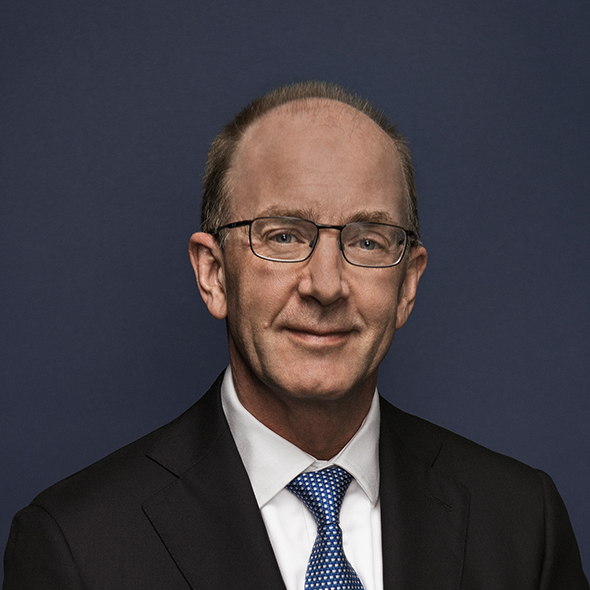As long-term stewards of their organisations, directors have an interest in seeing effective public policy that will spur Australia's future prosperity.
When we went to the polls in 2019, the tumultuous three years we would face as a nation were unimaginable: the Black Summer bushfires, a pandemic that locked down the economy, unprecedented flooding in north- eastern Australia and the fracturing of the global geopolitical order. For the past three years, policy decisions often were taken in haste to “get to the other side”, resolving immediate issues rather than the fundamental long-standing challenges that must be addressed.
As Australians head to the polls in May 2022, we must ask questions about the long term. We can anticipate periods of crisis and challenge in the coming decade across many fronts. What policies will spur Australia’s future prosperity? How do we build resilience to natural disaster and extreme weather events? How do we strengthen our economic and strategic ties with partners and allies?
As long-term stewards of their organisations, directors need effective public policy that addresses these questions. Particularly in the context of COVID-19 and climate change, directors have been compelled to respond to events and stakeholder concerns in an ambiguous and evolving policy environment, and the role of our organisations and our role as directors has been transformed as a consequence.
We asked members in the latest Director Sentiment Index (DSI), released on 21 April, what was the main issue that would influence their vote on 21 May. The range of answers reflects the diversity of the AICD’s 48,000 membership, but there were common themes.
Climate change was the number-one issue for more AICD members than any other. This is consistent with the results of the DSI over many years: directors nominate climate change and energy as the top priority for federal government policy. As a key risk factor for all organisations, the private sector is acting on climate change.
We know from the Climate Governance Study, which we released last year as host of the Climate Governance Initiative, that AICD members are taking steps to prepare their organisations. In that study, AICD members cited policy uncertainty as a key obstacle to successful climate risk governance. Recent bipartisan commitment to net zero must translate into consistent, far-sighted policy in the way we approach defence and infrastructure — national challenges that extend beyond the term of any one government.
Revitalising productivity
Economic management is also a major concern for AICD members. We were fortunate during COVID-19 that years of strong economic growth and sound budgetary management, bolstered by resilience in commodity prices, left Australia in a position to make a strong fiscal response to the sharpest downturn since the Great Depression. The next government will need a plan to address the medium-term structural issues in the budget. This is a much broader discussion than the traditional focus in Australia on debt and deficits. As AICD chief economist Mark Thirwell MAICD noted in his budget coverage, Australia’s medium- and long-run fiscal projections assume that the pace of Australian productivity growth will return to its long-run average, despite a prolonged period of underperformance. Like the path to net zero, how that eventuates is unclear.
Revitalising Australian productivity needs to be the focus of the next government’s economic plan. Without improvement, Australians will be poorer and unable to fund vital social programs. We need to do better on innovation and technology. Australian spending on research and development has been below the OECD average for two decades and Accenture’s Digital Performance Index ranks us second-last of 37 OECD countries for investment, uptake and output in digital technologies. Extracting returns from the commercialisation of research remains a weakness. Policy settings that encourage sensible risk-taking, including the embedding of insolvency reforms and for listed companies a continuous disclosure regime aligned to global standards, are a step in the right direction.
An immediate constraint on productivity is ongoing skill shortages across the economy, which many AICD members identified as their most pressing electoral issue. A key task of the next government will be to craft migration and education programs that match the needs of a globally-competitive Australian economy.
Tesla and Technology Council of Australia chair Robyn Denholm MAICD has called this “the reskilling opportunity of the century”. Denholm says Australia will need 150,000 more tech workers over the next four years and is calling for incentives to keep more skilled graduates in Australia. COVID-19 waves have also exposed a perilous shortage of workers in essential services that will need to be addressed. Even before COVID-19, the deficit in aged care workers was estimated around 17,000 annually; in the hospital sector, it’s closer to 90,000 annually in nursing alone.
Finally, the next government will face a fractured geopolitical environment. Coordinating responses to global challenges like climate change through global institutions will be fraught. Every “attack surface” in this environment is active: global finance, national supply chains and the production of critical technologies, political alliances, and military and cyber capabilities. The war in Ukraine saw global uncertainty rise in the DSI as an issue keeping directors awake at night. The geopolitical “atmospherics” are challenging for Australia generally. Investing in Australian diplomacy is essential. The alarm over the China- Solomon Islands security agreement is a reminder that geography is not a strategy.
This is an election to decide who will be accountable for the policy settings to navigate these challenges. We should not resign ourselves to an election campaign of personal invective and “never never” promises. In Ukraine we see citizens taking the ultimate step in defence of their democracy. The least we can do in this coming election is to be active citizens exploring and challenging the platforms as they are put forward.
Latest news
Already a member?
Login to view this content



.jpg)